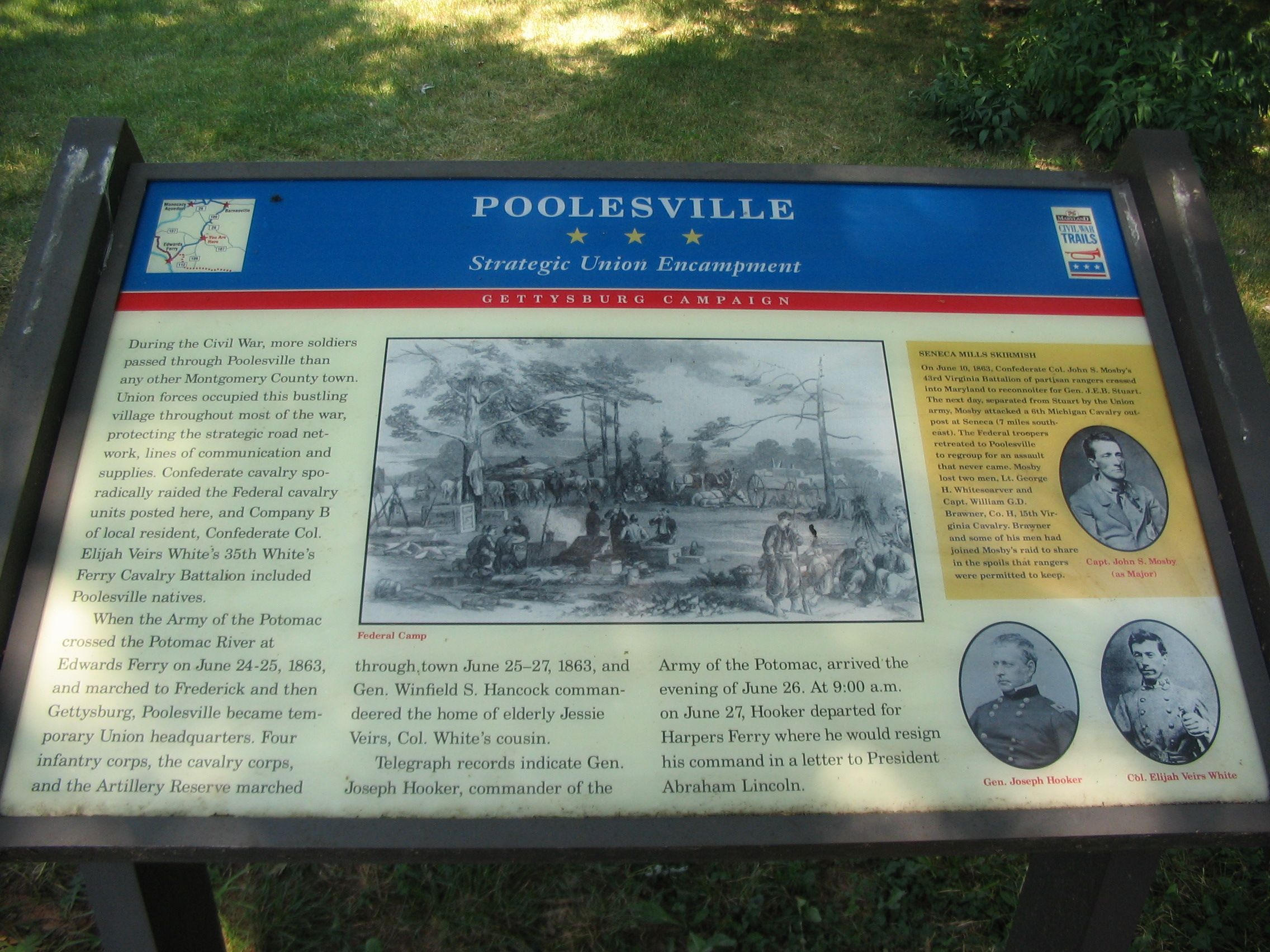The second Poolesville Historic Marker in our series calling attention to the history around us is the Poolesville—Strategic Union Encampment – Gettysburg Campaign. This marker is located in front of the John Poole House on the Coxen’s Road alley between the Old Bank Museum and John Poole House. The inscription which recounts more Civil War history reads:
During the Civil War, more soldiers passed through Poolesville than any other Montgomery County town. Union forces occupied this bustling village throughout most of the war, protecting the strategic road network, lines of communication and supplies. Confederate cavalry sporadically raided the Federal cavalry units posted here, and Company B of local resident, Confederate Col. Elijah Veirs White’s 35th White’s Ferry Cavalry Battalion included Poolesville natives.
When the Army of the Potomac crossed the Potomac River at Edwards Ferry on June 24-25, 1863, and marched to Frederick and then to Gettysburg, Poolesville became temporary Union headquarters. Four infantry corps, the cavalry corps, and the Artillery Reserve marched through town June 25-27, 1863, and Gen. Winfield S. Hancock commandeered the home of elderly Jessie Veirs, Col. White’s cousin.
Telegraph records indicate Gen. Joseph Hooker, commander of the Army of the Potomac, arrived the evening of June 26. At 9:00 a.m. on June 27, Hooker departed for Harpers Ferry where he would resign his command in a letter to President Abraham Lincoln.
The marker features a drawing depicting a Federal camp during the Civil War. Portraits of Gen. Joseph Hooker and Col. Elijah Veirs White, along with Capt. John S. Mosby (in the sidebar) are also included.
Seneca Mills Skirmish. On June 10, 1863, Confederate Col. John S. Mosby’s 43rd Virgina Battalion of partisan rangers crossed into Maryland to reconnoiter for Gen. J.E.B. Stuart. The next day, separated from Stuart by the Union army, Mosby attacked a 6th Michigan Cavalry outpost at Seneca (7 miles southeast). The Federal troopers retreated to Poolesville to regroup for an assault that never came. Mosby lost two men, Lt. George H. Whitescarver and Capt. William G.D. Brawner, Co. H, 15th Virginia Cavalry. Brawner and some of his men had joined Mosby’s raid to share in the spoils that rangers were permitted to keep.

